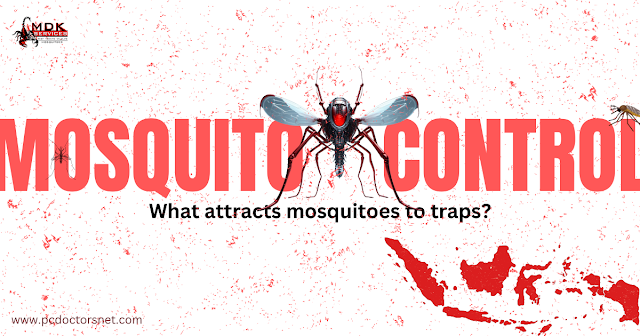Mosquitoes are notorious pests that can quickly ruin an outdoor gathering or a peaceful evening on the porch. As the warmer months approach, many homeowners turn to mosquito traps as a solution to keep these pesky insects at bay. But have you ever wondered what exactly attracts mosquitoes to these traps? Understanding the science behind mosquito attraction can help us effectively control their population and enjoy our outdoor spaces without the nuisance of buzzing and biting.
- Carbon Dioxide:
One of the primary factors that attract mosquitoes to traps is the presence of carbon dioxide. Mosquitoes are highly sensitive to carbon dioxide, which is emitted by humans and other warm-blooded animals as they exhale. Mosquito traps often use a combination of carbon dioxide and other attractants to mimic the breath of potential hosts, luring mosquitoes into the trap.
- Octenol:
Octenol is another chemical compound that plays a significant role in attracting mosquitoes to traps. This naturally occurring substance is found in the breath and sweat of humans and animals. Mosquito traps often use synthetic versions of octenol to lure mosquitoes, as it mimics the scent of mammalian hosts and increases the effectiveness of the trap.
- Heat and Moisture:
Mosquitoes are also attracted to heat and moisture, which are indicators of potential hosts. Many mosquito traps utilize heat and moisture to create a favorable environment for mosquitoes, making them more likely to approach the trap in search of a blood meal.
- Visual Cues:
In addition to chemical attractants, some mosquito traps also rely on visual cues to lure mosquitoes. These traps may use UV light or other visual stimuli to attract mosquitoes from a distance, drawing them closer to the trap where they can be captured.
Using Mosquito Traps for Effective Control:
Mosquito traps, such as the mosquito magnet and indoor mosquito trap, offer an environmentally friendly alternative to chemical insecticides and can help reduce mosquito populations in residential areas. By understanding what attracts mosquitoes to traps, homeowners can strategically place traps in areas where mosquitoes are most active, maximizing their effectiveness in controlling these pests.
Choosing the Best Outdoor Mosquito Trap Repellent System:
When selecting an outdoor mosquito repellent system, it's essential to consider factors such as coverage area, effectiveness, and ease of use. Look for systems that utilize a combination of attractants, such as carbon dioxide and octenol, to lure mosquitoes and trap them effectively. Additionally, consider options like best outdoor mosquito repellent systems that are designed to cover larger outdoor spaces and provide long-lasting protection against mosquitoes.
Conclusion:
Understanding what attracts mosquitoes to traps is key to effectively controlling their population and reducing the nuisance of mosquito bites. By utilizing chemical attractants such as carbon dioxide and octenol, as well as visual cues like UV light, mosquito traps can effectively lure mosquitoes and capture them, providing relief for homeowners and outdoor enthusiasts alike.
At MDK Services, they understand the importance of enjoying your outdoor spaces without the hassle of mosquitoes. That's why they offer comprehensive Mosquito Control Trap Services at an affordable cost. Their team of experts is dedicated to providing effective solutions tailored to your needs, ensuring a mosquito-free environment for you and your family to enjoy. Contact MDK Services today at +1325-658-3498 to schedule a consultation and take the first step towards a mosquito-free home.









.jpg)





0 coment�rios: